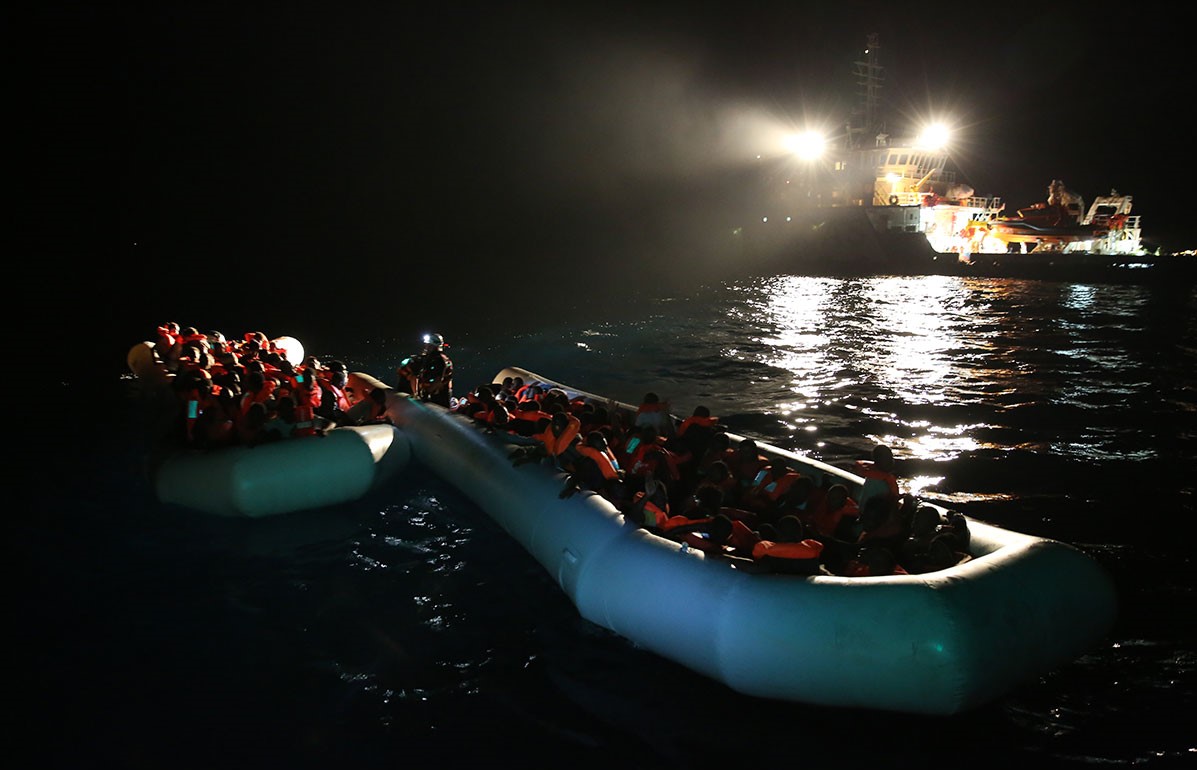The EU must stop the criminalisation of solidarity with migrants and refugees
The criminalisation of solidarity in Europe is soaring. Researchers and civil society have identified at least 49 ongoing cases of investigation and criminal prosecution in 11 Member States involving a total of 158 people in a recent study by the European research platform ReSOMA. The number of individuals criminalised for humanitarian activities has grown tenfold, from 10 people in 2015 to 104 in 2018.
The targets include volunteers, activists, NGOs, crew members of rescue ships, migrants’ family members, and also journalists, mayors and priests. The recent arrest of the Sea Watch 3 captain, Carola Rackete, is just the latest example of how people are being blamed for saving migrants’ lives and providing the humanitarian assistance which Member States are unwilling or unable to provide, despite being obliged to according to international and EU law.
Independent judges have found no sound evidence for convictions in most of these cases. This suggests that prosecutions are often being politically used to deter solidarity and create a hostile environment for migrants. Policing solidarity further involves suspicion, intimidation, harassment and disciplining against civil society, with long-term consequences for the rule of law, democratic accountability, social cohesion, freedom of association and fundamental rights in the EU. These misguided investigations fuel the negative image of migrants as criminals and perpetuate the perception of chaos at Europe’s borders.
Criminalising solidarity also distracts the public from the real issues in EU migration and asylum policies:
- lack of protected entry and regular migration channels,
- inadequate reception conditions,
- violations of international obligations in Search and Rescue operations,
- pullbacks to Libya and other EU neighbouring countries as well as pushbacks amongst Member States, and
- lack of clear agreements on disembarkation arrangements.
Most investigations and formal prosecutions are related to the vague definition of crime in the EU Facilitation Directive which fails to properly distinguish between human smuggling and humanitarian work. But the European Commission has been reluctant to consider the links between the EU Facilitation Directive and the criminalisation of solidarity as well as the compliance of the EU’s anti-smuggling policies with the EU Charter of Fundamental Rights. In addition, the EU protects human rights defenders abroad but fails to protect people acting in solidarity with migrants within its own borders.

The EU institutions and Member States must put an end to the criminalisation of people and organisations supporting those in need. To end the criminalisation of solidarity, we recommend:
The European Union institutions to:
- Revise the EU Facilitation Directive by clearly defining migrant smuggling, in line with the UN Migrant Smuggling Protocol, that requires criminal intent, such as ‘financial or other material benefit’ or unjust enrichment. The new directive shall not allow the criminalisation of humanitarian actors, by making the humanitarian exemption clause mandatory for the Member States.
- Monitor early signs of policing of solidarity, before it leads to the criminalisation of humanitarian actors. Such monitoring could be carried out by an independent observatory linked to the proposed EU Rule of Law Mechanism, and through parliamentary investigations. The monitoring should not only include criminal convictions but also all cases of criminal investigations as well as ongoing harassment and targeting of human rights defenders of migrants.
- Set up an EU proactive search and rescue mission to address the gaps in humanitarian protection of people on the high seas.
- Adopt guidelines on the respect for the fundamental rights of human rights defenders and humanitarian actors in the fight against smuggling and other border control operations. Such guidance should introduce the principle of a ‘firewall’ in order to clearly separate immigration enforcement and civil society and professional mandates (including the role played by health, educational, social, legal actors, as well as labour inspectors and law enforcement authorities).
- Dedicate EU funding to strategic litigation and support of human rights defenders in Europe, with specific support to civil society in EU Member States experiencing rule-of-law backsliding.
Member States to:
- Stop interference with humanitarian SAR missions.
- Ensure that social and health service providers, law enforcement (police) and labour inspectors are not required to collect and share information with immigration authorities, based on the principle of a ‘firewall’.
The European Union and its Member States to:
- Promote a conducive environment to humanitarian assistance and solidarity towards migrants. Remove restrictions to civil society’s space and prevent violations of the rights of human rights defenders, including smear campaigns, threats and attacks against them, and other attempts to hinder their work.
- Broaden and facilitate direct access to EU funding for civil society under the EU Multiannual Financial Framework for 2021-27, including for humanitarian assistance provided to undocumented migrants and for actions promoting EU values and the rule of law.
- Adopt and implement balanced EU migration policies that include safe and regular pathways to Europe, including resettlement schemes, complementary pathways such as humanitarian visas and work permit schemes, and labour migration schemes grounded in the decent work principles and across skills levels that would contribute to the reduction of human smuggling and trafficking.
For the full list of signatories, click here.
For media inquiries, please contact Eva Oyón on: eva.oyon@redcross.eu or +32 2 235 09 22

